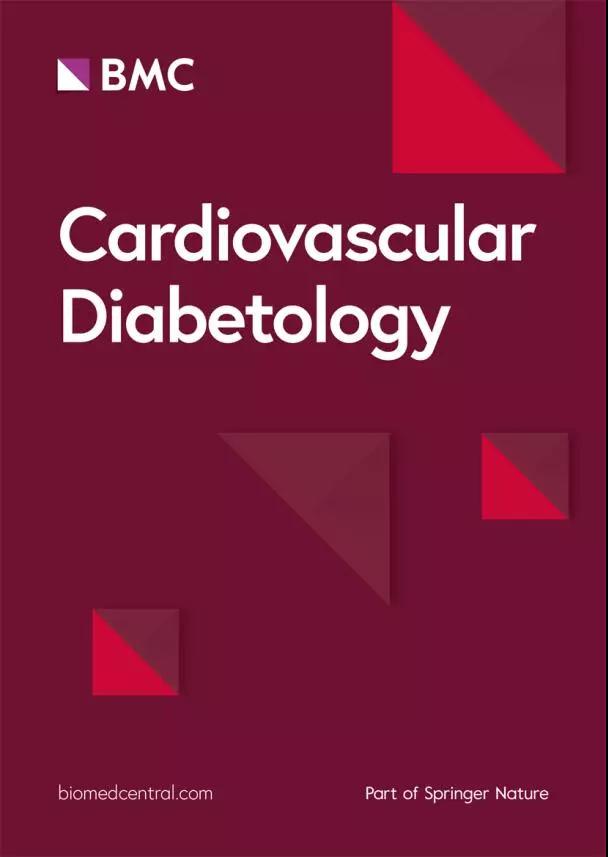饮食干预和间歇性禁食对患有 T2DM 的肥胖者高密度脂蛋白功能的影响:随机对照试验
IF 8.5
1区 医学
Q1 CARDIAC & CARDIOVASCULAR SYSTEMS
引用次数: 0
摘要
心血管疾病是导致 2 型糖尿病(T2DM)患者死亡的一个重要风险因素。高密度脂蛋白(HDL)具有多方面的动脉粥样硬化保护作用,并能加强血糖控制,因此被认为在维护心血管健康方面发挥着至关重要的作用。饮食干预和间歇性禁食(IF)对高密度脂蛋白功能的影响仍不确定。本研究旨在评估饮食干预和间歇性禁食作为一种安全改善血糖控制和减轻体重的策略对 T2DM 患者高密度脂蛋白功能参数的影响。在进行为期 12 周的干预之前,INTERFAST-2 研究的所有参与者(n = 41)都被标准化为统一的基础胰岛素方案,并被随机分配到 IF 组或非 IF 组。此外,所有参与者都被建议遵守促进健康饮食模式的饮食建议。IF 组(n = 19)采用隔日禁食法,在禁食日减少 75% 的卡路里摄入量。参与者的血糖水平受到持续监测。干预后还测量了其他参数:通过核磁共振波谱测量脂蛋白组成和亚类分布。高密度脂蛋白胆固醇外排能力、副氧自由基酶 1 (PON1) 活性、卵磷脂胆固醇酰基转移酶 (LCAT) 活性和胆固醇酯转移蛋白 (CETP) 活性通过细胞检测法和市售试剂盒进行评估。载脂蛋白 M(apoM)水平通过酶联免疫吸附法测定。经过 12 周的干预后,IF 方案显著提高了血清载脂蛋白 M 的水平(p = 0.0144),而非 IF 组则没有提高(p = 0.9801)。在 IF 组中,载脂蛋白 M 水平与体重下降和空腹血糖水平相关。12 周后,两组的高密度脂蛋白胆固醇外排能力均有显著增强(p < 0.0001,p = 0.0006)。值得注意的是,在 12 周的干预后,只有非 IF 组的 PON1(p = 0.0455)和 LCAT(p = 0.0117)活性明显升高。相比之下,胰岛素转换组观察到的变化未达到统计学意义。均衡饮食结合细致的胰岛素管理可改善高密度脂蛋白的多种功能指标。虽然额外的 IF 能提高载脂蛋白水平,但并不能进一步增强高密度脂蛋白功能的其他方面。该研究于2019年9月3日在德国临床试验注册中心(DRKS)注册,注册号为DRKS00018070。本文章由计算机程序翻译,如有差异,请以英文原文为准。
Effects of dietary interventions and intermittent fasting on HDL function in obese individuals with T2DM: a randomized controlled trial
Cardiovascular disease represents a significant risk factor for mortality in individuals with type 2 diabetes mellitus (T2DM). High-density lipoprotein (HDL) is believed to play a crucial role in maintaining cardiovascular health through its multifaceted atheroprotective effects and its capacity to enhance glycemic control. The impact of dietary interventions and intermittent fasting (IF) on HDL functionality remains uncertain. The objective of this study was to assess the effects of dietary interventions and IF as a strategy to safely improve glycemic control and reduce body weight on functional parameters of HDL in individuals with T2DM. Before the 12-week intervention, all participants (n = 41) of the INTERFAST-2 study were standardized to a uniform basal insulin regimen and randomized to an IF or non-IF group. Additionally, all participants were advised to adhere to dietary recommendations that promoted healthy eating patterns. The IF group (n = 19) followed an alternate-day fasting routine, reducing their calorie intake by 75% on fasting days. The participants’ glucose levels were continuously monitored. Other parameters were measured following the intervention: Lipoprotein composition and subclass distribution were measured by nuclear magnetic resonance spectroscopy. HDL cholesterol efflux capacity, paraoxonase 1 (PON1) activity, lecithin cholesterol acyltransferase (LCAT) activity, and cholesterol ester transfer protein (CETP) activity were assessed using cell-based assays and commercially available kits. Apolipoprotein M (apoM) levels were determined by ELISA. Following the 12-week intervention, the IF regimen significantly elevated serum apoM levels (p = 0.0144), whereas no increase was observed in the non-IF group (p = 0.9801). ApoM levels correlated with weight loss and fasting glucose levels in the IF group. Both groups exhibited a robust enhancement in HDL cholesterol efflux capacity (p < 0.0001, p = 0.0006) after 12 weeks. Notably, only the non-IF group exhibited significantly elevated activity of PON1 (p = 0.0455) and LCAT (p = 0.0117) following the 12-week intervention. In contrast, the changes observed in the IF group did not reach statistical significance. A balanced diet combined with meticulous insulin management improves multiple metrics of HDL function. While additional IF increases apoM levels, it does not further enhance other aspects of HDL functionality. The study was registered at the German Clinical Trial Register (DRKS) on 3 September 2019 under the number DRKS00018070.
求助全文
通过发布文献求助,成功后即可免费获取论文全文。
去求助
来源期刊

Cardiovascular Diabetology
医学-内分泌学与代谢
CiteScore
12.30
自引率
15.10%
发文量
240
审稿时长
1 months
期刊介绍:
Cardiovascular Diabetology is a journal that welcomes manuscripts exploring various aspects of the relationship between diabetes, cardiovascular health, and the metabolic syndrome. We invite submissions related to clinical studies, genetic investigations, experimental research, pharmacological studies, epidemiological analyses, and molecular biology research in this field.
 求助内容:
求助内容: 应助结果提醒方式:
应助结果提醒方式:


